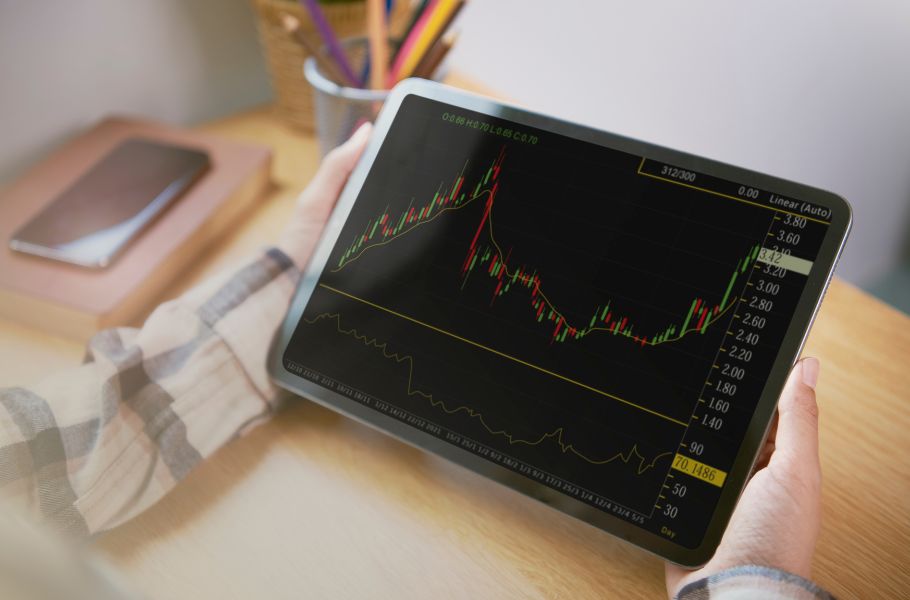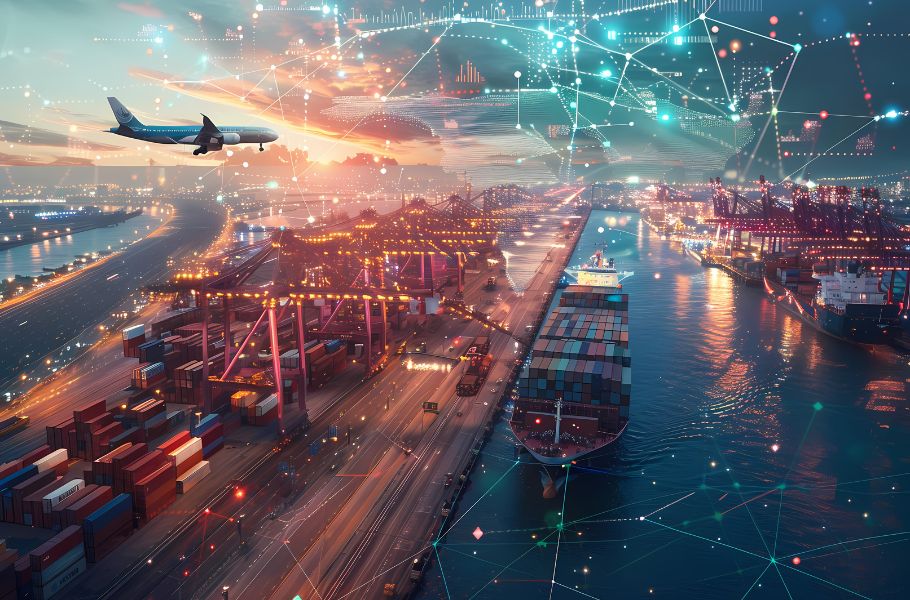Global supply chains are the invisible threads that quietly connect countries, companies, and communities around the world. Every product we use—from clothing to electronics to food—has a journey behind it, often involving multiple nations and countless hands. These supply chains are not just systems of delivery; they are stories of connection, cooperation, and shared purpose. Understanding how they work helps us see the world with more awareness, empathy, and appreciation.
What Are Global Supply Chains?
At their heart, global supply chains are the networks that help move goods from one place to another—often across many countries. They include everything from raw material sourcing to manufacturing, packaging, transportation, and delivery to the end customer.
For example, a single laptop might have components from Japan, be assembled in China, shipped through Singapore, and then delivered to someone in Canada. This coordination is made possible through supply chains that stretch across the globe, involving multiple players who all rely on one another.
The Beauty of Global Supply Chains
Despite their complexity, there’s something truly beautiful about how global supply chains bring the world closer. They create bridges between people, cultures, and economies—offering benefits that reach far and wide.
Access to Diverse Products
Thanks to global supply chains, local shops can offer international products—from Italian pasta to Korean skincare. Consumers enjoy more variety, and businesses have more to offer their customers.
Opportunities for Economic Growth
Small and large businesses alike can find new opportunities through global trade. Local producers can export their goods, find better materials, or even collaborate internationally.
Job Creation Across Borders
Millions of people around the world earn a living through the roles created within supply chains—whether in farming, manufacturing, logistics, or retail.
Encouragement of Innovation
To keep up with the pace of global demand, companies often develop better technology, smarter logistics, and more efficient processes—all sparked by the need to stay connected.
The Gentle Challenges Within Global Supply Chains
While the benefits are real, global supply chains also come with challenges that call for compassion, collaboration, and long-term thinking.
Vulnerability to Disruption
Natural disasters, pandemics, wars, or political tensions can interrupt the smooth flow of goods. When one link in the chain breaks, it affects the entire system.
Environmental Impact
Transporting goods across long distances often means higher emissions and energy usage. Sustainable choices in packaging, shipping, and sourcing are becoming increasingly important.
Labor Conditions and Fair Wages
Some parts of the supply chain may involve unfair labor practices. Supporting companies that prioritize ethical sourcing helps ensure workers are treated with dignity.
Complexity and Lack of Transparency
As supply chains grow, they can become harder to monitor. Businesses must work harder to maintain visibility and accountability across each stage of their process.
How Businesses Can Support Kinder, Smarter Supply Chains
As awareness grows, more businesses are choosing to build supply chains that are not only efficient but also responsible. Here’s how:
Choosing Ethical Suppliers
Working with partners who value fair labor practices and environmental care helps create a chain rooted in kindness and trust.
Reducing Environmental Footprints
Switching to cleaner transport methods, reducing packaging waste, and sourcing materials locally when possible can make a big difference.
Investing in Transparency
Sharing where products come from and how they’re made builds trust with customers—and encourages accountability at every step.
Strengthening Local-Global Balance
While global supply chains are vital, supporting local elements within the chain adds resilience. For example, a business might source some materials locally to reduce delays, while still benefiting from international partnerships. This blend of global and local strengthens the supply chain and reduces over-dependence on distant sources.
The Role of Technology in Global Supply Chains
Modern supply chains rely heavily on technology to function smoothly. From tracking shipments to predicting demand, digital tools make the whole system smarter and more responsive.
Real-Time Tracking
GPS and tracking software now allow businesses and customers to know exactly where their goods are—offering peace of mind and helping companies avoid delays.
Inventory Management Systems
Digital systems help businesses know when to restock, which products are moving fast, and how to prevent waste or over-ordering.
Automation and Robotics
Many warehouses now use machines to sort, pack, or even deliver products—making operations faster and more efficient.
Data-Driven Decisions
By analyzing patterns and trends, companies can forecast demand, reduce costs, and adjust their strategies more effectively—helping the entire chain operate more smoothly.
Real-Life Inspiration
Let’s look at a few gentle examples of how companies are improving their supply chain models:
- 🌿 A small fashion brand started working with local artisans in multiple countries but ensured fair pay and eco-friendly practices. They proudly share stories about who made each product.
- 📦 A sustainable packaging startup switched from plastic to biodegradable materials and now sources its raw ingredients from nearby farms to cut down on fuel usage.
- 🥗 A food delivery service built relationships with both local farmers and overseas suppliers, allowing them to offer fresh, diverse meals while staying transparent about their sourcing.
These stories reflect the power of making mindful decisions—where every link in the chain supports not just profit, but also people and the planet.
Why Global Supply Chains Matter to Everyday Life
Even if we don’t notice it, global supply chains affect almost every part of our daily lives:
- The coffee in your morning cup
- The clothes you wear
- The phone you use
- The medicine in your cabinet
They remind us that the world is deeply connected. That something made with care in one country can touch the life of someone else, thousands of miles away.
Understanding this system helps us appreciate not just the products we buy, but also the people and processes behind them.
A Gentle Closing Thought
Global supply chains are more than just systems—they are living bridges that connect nations, communities, and people. While they come with their own set of challenges, they also offer endless opportunities for growth, collaboration, and positive change.
By building smarter, more ethical, and more sustainable supply chains, we can shape a future where everyone—no matter where they live—benefits from a connected and compassionate world.
Whether you’re a small business owner, a consumer, or simply someone who’s curious, your awareness matters. Because behind every product, there’s a journey—and every journey deserves to be thoughtful, fair, and kind.

























